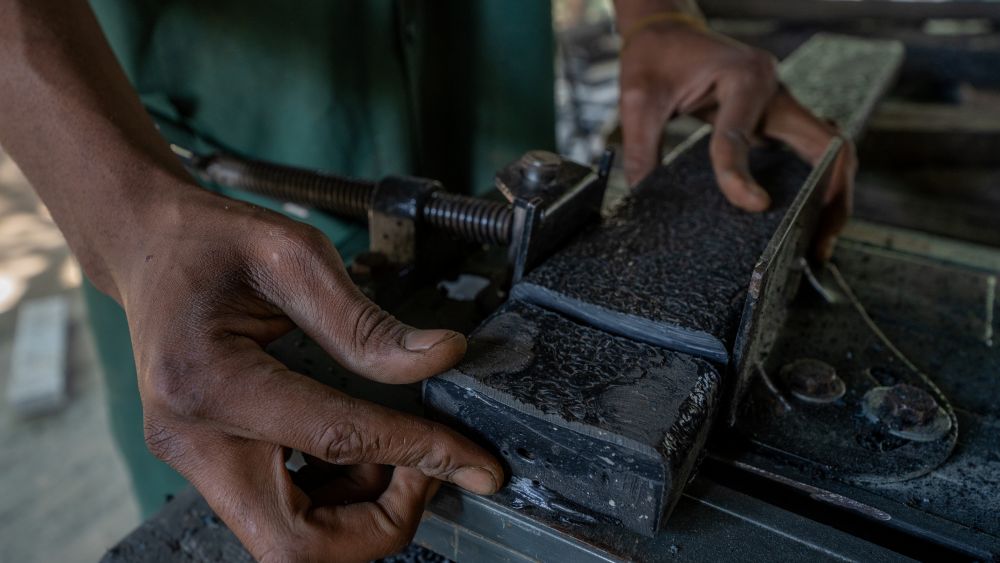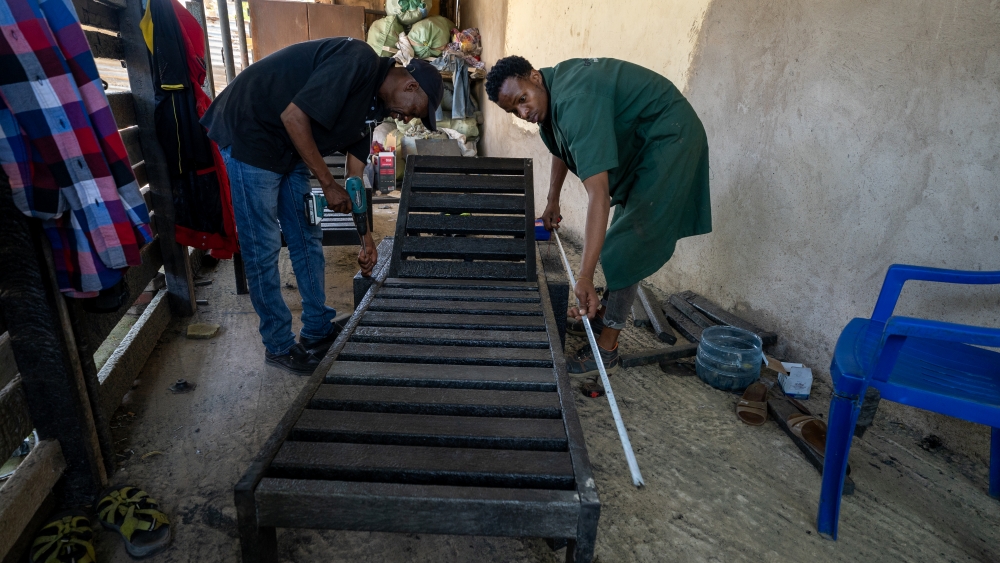Eco Plastic Wood is an innovative solution to the growing problem of plastic waste, created in 2018 by Tanzanian social entrepreneur Edgar Edmund Tarimo, CEO and Co-founder of Green Venture Tanzania. To date, 1,000 tonnes of plastic have been recycled, producing approximately 140,000 Eco Plastic Wood planks and contributing to a more sustainable and circular economy.
Edgar’s story
At 15 years old, Edgar visited Dar es Salaam and saw first-hand the devastation caused by flooding, which destroyed over 700 homes. He noticed that many people relied on mud homes because of a lack of affordable, durable materials. Meanwhile, plastic waste clogged drainage systems, increasing the risk of future floods.
Determined to tackle both plastic pollution and construction challenges, Edgar set himself a challenge: to develop a solution that was both sustainable and more durable than existing materials in Tanzania.
With just US$20, he built his first prototype and, with the support of his teachers, turned it into a science project at school. Weekends were spent refining his designs, and soon, he was showcasing his work at science fairs in Arusha, Tanzania. His breakthrough came in 2017 when he participated in the Anzisha Prize competition in South Africa, where he gained valuable entrepreneurship skills and secured his first major investment. This allowed him to set up an office and expand his project.
The innovation
The production of Eco Plastic Wood begins with collecting plastic waste from various sources. Most of the plastic comes from freelance waste collectors, who sell it by the kilogram, as well as from partnerships with greenhouse companies and local schools.
Once gathered, the plastic is sorted, shredded, and fed into an extruder machine, which heats and recycles the material at carefully controlled temperatures. The team ensures that the plastic melts without burning, maintaining optimal recycling conditions. The molten plastic is then injected into moulds, forming durable lumber pieces.

With just US$20, I built my first prototype – what started as a small experiment has now grown into Eco Plastic Wood, transforming waste into sustainable solutions. The Africa Prize will help us get valuable connections and meet partners who will be able to help us scale the impact of the work we do.
These eco-friendly planks are assembled by skilled carpenters and crafted into final products, including their bestselling Eco Plastic coffee table. Since plastic behaves differently from traditional wood, local carpenters receive specialised training to work with the material effectively.
To further minimise waste, Edgar and the team are collaborating with MIT to develop a device that captures plastic particles lost during processes such as sanding and joining. This innovation aims to ensure a completely waste-free production cycle.
Additionally, they have begun their plan to expand and ship globally.
Making a difference
To date, Edgar and the team have recycled an estimated 1,000 tonnes of plastic, transforming it into 140,000 Eco Plastic Wood planks.
Beyond sustainability, the company’s greatest impact is the green jobs it has created, particularly for informal waste collectors in Tanzania. By turning waste collection into meaningful work, these individuals now have a stable livelihood while actively contributing to environmental protection. The team is committed to ensuring they feel valued and appreciated for their crucial role in this initiative.
Driving this innovation is a 12-person team, including machine operators working in day and night shifts, three carpenters, and essential administrative staff – the CEO, production manager, and sales team – all working together to scale this sustainable solution.


